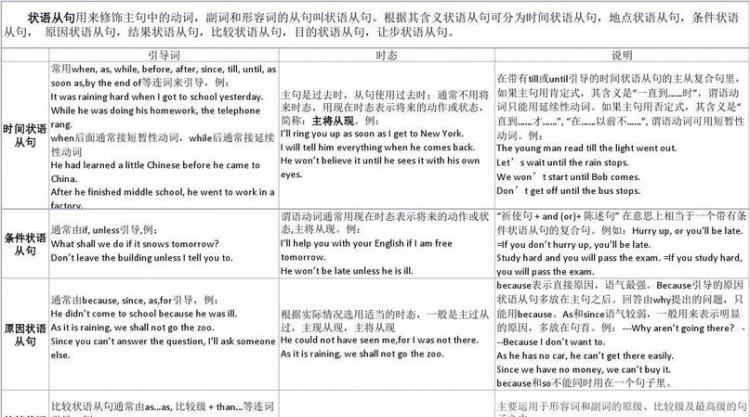英语语法中的三种主要从句包括名词性从句、形容词性从句和副词性从句。名词性从句在句子中充当名词,形容词性从句用来修饰名词或代词,而副词性从句用来修饰动词、形容词或副词。这三种从句在语法结构、用法和作用上都有所不同,学习英语的同学们应认真区分和掌握它们的用法。

名词性从句
名词性从句就是在句子中充当名词的从句,通常包括主语从句、宾语从句和表语从句。其中,主语从句作为句子的主语,宾语从句作为动词的宾语,表语从句则作为主语或宾语的补语。名词性从句通常以连词that, whether, if等开头,例如:
- 主语从句:That he has passed the exam is really good news.
- 宾语从句:I don't know whether he will come to the party.
- 表语从句:Her problem is that she can't speak English fluently.
形容词性从句
形容词性从句用来修饰一个名词或代词,起到形容词的作用。它一般以关系代词who, whom, whose, that, which等开头,例如:
- The book, which was written by a famous author, is very popular.
- The girl who is sitting next to me is my best friend.
副词性从句
副词性从句用来修饰一个动词、一个形容词或一个副词,起到副词的作用。它一般以连词because, if, when, although等开头,例如:
- I will stay at home because it is raining outside.
- If you study hard, you will pass the exam.
